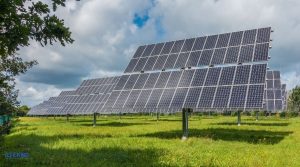Solar energy stands out as one of the most popular and environmentally friendly renewable energy sources. Solar panels directly convert sunlight into electricity, providing a clean energy source for homes, businesses, and even large industrial facilities. However, the efficiency and installation process of solar energy systems can vary depending on geographical location, climate conditions, and other factors.
Geographies Where Solar Energy Systems Operate Efficiently:
The most efficient regions for solar energy systems are those with greater exposure to sunlight throughout the year. Generally, areas near the equator and high-altitude regions are ideal for solar energy.
- Equatorial Regions: These areas receive sunlight at a more direct angle, resulting in higher solar energy potential.
- High-Altitude Regions: The atmosphere is thinner at higher altitudes, allowing sunlight to reach the surface with less obstruction, leading to increased solar energy production.
- Low-Humidity Regions: Humidity can reduce the efficiency of solar panels. Therefore, regions with low humidity are more suitable for solar energy systems.
- Regions with Clear and Cloudless Skies: Clouds can obstruct sunlight, decreasing solar energy production. Consequently, regions with clear and cloudless skies are more ideal for solar energy systems.
Solar Energy Potential in Turkey:
Turkey boasts high solar energy potential. Particularly, the Mediterranean, Aegean, and Southeastern Anatolia regions are ideal for solar energy systems due to their long sunshine durations and favorable climate conditions.
Installation Process of Solar Energy Systems:
The installation process of solar energy systems involves the following steps:
- Determining Energy Needs: The first step is to determine the energy needs of the home or business. This is crucial for determining the size and capacity of the solar energy system.
- Roof or Land Analysis: Solar panels are typically installed on rooftops or suitable land areas. Roof or land analysis is essential for optimal placement of solar panels to maximize sunlight exposure.
- System Design and Equipment Selection: Based on energy needs and site analysis results, the solar energy system is designed, and appropriate equipment is selected. This includes solar panels, inverters, batteries, and other components.
- Permit and Approval Processes: Necessary permits and approvals must be obtained for solar energy system installation. This involves communication with local authorities and electricity distribution companies.
- Installation: The solar energy system is installed by expert teams. The installation process includes mounting solar panels, making electrical connections, and integrating other components.
- Ongoing Maintenance and Monitoring: Solar energy systems require regular maintenance and monitoring. This is crucial for maintaining the system's efficiency and lifespan.
Conclusion:
Solar energy systems offer a clean and sustainable energy source. With the right geographical location and proper installation, solar energy systems can provide significant long-term energy savings and contribute to environmental protection. Considering Turkey's solar energy potential, investing in solar energy systems can be a wise choice both economically and environmentally.



